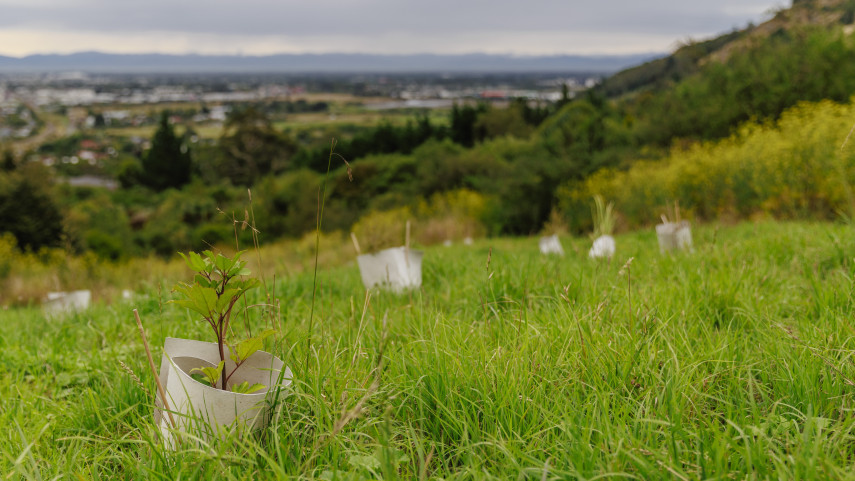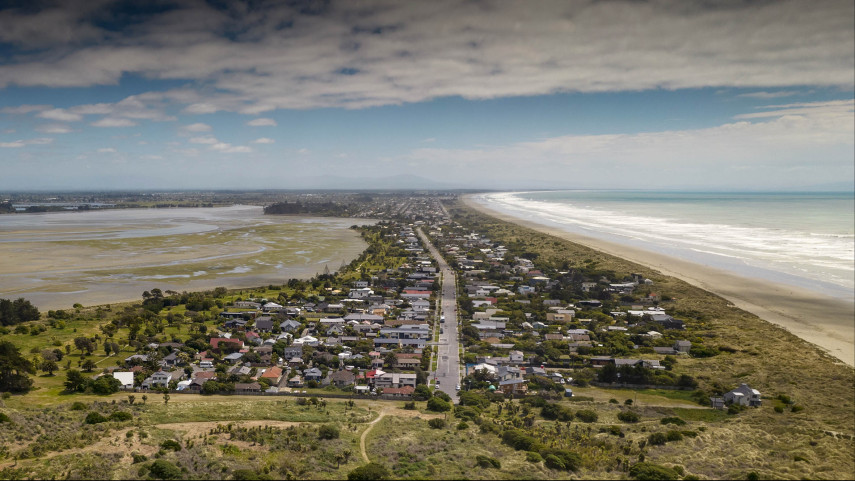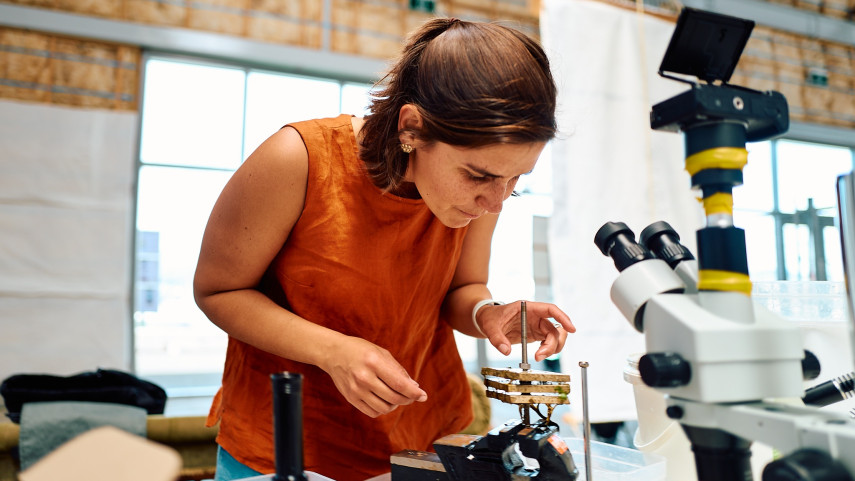Christchurch City Council’s biodiversity strategy supports “A Biodiversity Strategy for the Canterbury Region"

Biodiversity is the rich variety of life on earth and ensures the survival of people. It concerns all species of plants and animals, including people, their genetic variation and the range of habitats upon which all living things depend.
It encompasses the whole of the natural world, not just the rare or the endangered.
- Cover, Contents and Executive Summary [PDF, 434 KB]
- Part 1: Chapters 1 to 6 [PDF, 1.2 MB]
- Part 1: Chapters 7 to 9 [PDF, 592 KB]
- Part 2: Chapter 10 [PDF, 446 KB]
- Part 2: Chapter 11 [PDF, 1.9 MB]
- Appendices and references [PDF, 218 KB]
Purpose
We are a part of New Zealand’s incredible variety of living things. We live in a unique place, with native species which do not occur anywhere else in the world.
Biodiversity touches and benefits all aspects of our lives. Our diverse range of species and habitats contribute to the economy, health and quality of life of people in Christchurch.
We should be proud of our rich biodiversity. Many animals and plants form part of our native identity. Others form part of our cultural heritage having been introduced to the area by settlers.
The variety of our biodiversity is fragile, but we can all help to protect it. Even small steps can make a big difference and there are many things we can do.
We all have a responsibility to think about the impact of our decisions upon wildlife and we can all make positive decisions to encourage and grow our biodiversity.
Goals
The Christchurch City Biodiversity Strategy 2008 – 2035 sets out a vision of what could be achieved for biodiversity across Christchurch and Banks Peninsula.
It provides key goals and objectives to guide the efforts of the Council and the many organisations and individuals involved in the protection and enhancement of local biodiversity.
The Biodiversity Strategy goals include:
- to conserve and restore indigenous biodiversity in Christchurch and Banks Peninsula
- priority species are protected and restored
- ecosystems supporting biodiversity are protected and restored
- species and habitats important to Ngāi Tahu are protected and restored
- pests are managed to minimise their impact on biodiversity
- new Council policies will take account of the Biodiversity Strategy.
To raise awareness and understanding of indigenous biodiversity:
- make information on local biodiversity available to the Council and community
- promote understanding of biodiversity issues and management.
To encourage widespread participation in support of indigenous biodiversity conservation:
- develop and maintain strategic partnerships for the benefit of biodiversity
- support local people’s initiatives to protect and enhance biodiversity.
To improve and facilitate research and monitoring of indigenous biodiversity:
- establish monitoring programmes for biodiversity
- support research into sustainable management of biodiversity
- promote community involvement in monitoring and research.
Priorities
The Biodiversity Strategy will be reviewed this year 2013/14. The review will take account of three issues:
- Ensuring that the Implementation Plan is focused and can be achieved in the timelines suggested;
- Ensuring that the Strategy Goals and Objectives fit in with the Community Outcomes of the Three Year Plan and future Long Term Plan;
- Taking account of the impacts of the earthquakes upon the biodiversity of the city and Banks Peninsula, as well as the impacts upon the implementation of biodiversity work across the Council area.
The review will be complete and will be published mid-2014.
In the meantime work continues on the implementation of the Strategy:
Support for conservation groups and organisations:
- continue to provide funding where appropriate to groups, organisations and agencies involved in protecting and enhancing biodiversity across the Council area;
- seek opportunities for greater collaboration to pursue common goals wherever possible.
Data management:
- work to progress a full-scale Ecological Data Management System for the Council, so that all ecological records are held in one place and are accessible to all staff – with a view to sharing this information with other organisations and groups in future
Operational Pest Management:
- the 2013/14 Operational Pest Management Programme has been determined;
- it will be reviewed at the end of the year, to ensure that we respond to changes as they occur.
Sites of Ecological Significance – Christchurch City Plan:
- a project to commence the identification of these sites in the urban area will commence later in the year;
- the SESs will be integrated into the District Plan review which is scheduled to commence shortly;
- the work will continue into 2014/15
Banks Peninsula Ecological Study:
- work continues to identify Sites of Ecological Significance which will be proposed in the upcoming District Plan review (and in accordance with the Environment Court consent order 2007);
- working with a Steering Group of representative interests on the process - including consultation with landowners and land managers, and a package of non-regulatory measures to encourage the protection and enhancement of sites and other biodiversity across Banks Peninsula;
- the work will continue into 2014/15.
Other ongoing work throughout the Council:
- post-earthquake restoration and management of regional and urban parks and waterways;
- liaison with trusts, community groups, agencies to promote collaborative approaches to biodiversity;
- advising planners and developers about biodiversity issues in policy and in resource consents.
We all need to work together to find ways to nurture our unique biodiversity and ensure that people enjoy it for years to come. The Christchurch City Council, in partnership with the community, landowners, iwi and other agencies, is committed to protecting indigenous biodiversity as an essential part of the rural and urban fabric of Christchurch and Banks Peninsula.
The Biodiversity Strategy helps to guide the Council and community towards things we can do to make a real difference. Some things are already happening – and we need to make sure they carry on – while other things are new and will need some time to set up. Some suggestions can be found below about things that we can do straightaway.
Looking after our biodiversity
Get to know more about the biodiversity around you: it’s in your back yard and local park. To find out more about the plant species that existed in Christchurch before humans arrived see Christchurch Ecosystems and Planting Guides(external link).
Plant native trees, shrubs and groundcover in your garden to attract insects and birds.
Join a local community group involved in biodiversity work – planting trees, scrub bashing and birdwatching are all activities which take place in and around Christchurch.
There are many trusts and conservation groups run by people in the community to look after the interests of wildlife in a number of places. To find out how you can get involved, see Community Information Christchurch(external link) (CINCH).
Contact the Christchurch City Council Ranger Service to ask about their volunteer groups.
If you want more information about any of these issues please contact the Principal Advisor Natural Environment.
Related news

Restoration of red-zoned Port Hills properties gets underway
A 10-year programme to revegetate red-zoned properties in the Port Hills aims to transform the area and restore its unique biodiversity.
11 Feb 2026
Landmark Southshore resource consent approved
The long-awaited project to build erosion and flood protection structures along Te Ihutai/Avon-Heathcote Estuary edge in Southshore and South New Brighton is set to begin, following the approval of resource consent this week.
4 Feb 2026
Marine hotels provide insights into Lyttelton Harbour health
Deep below the surface of Whakaraupō Lyttelton Harbour are invertebrates offering important clues about the health of the harbour.
17 Dec 2025